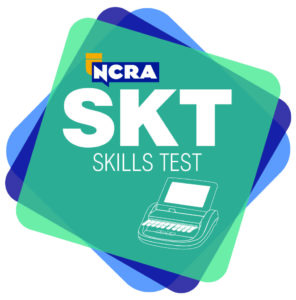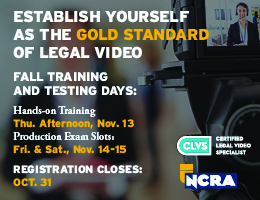By Marybeth Everhart
“It doesn’t work.” That’s a sentence I’ve heard many, many times over the years, as a teacher, long-time CAT software trainer (and user), and marketing manager for Realtime Coach. This phrase, in general, refers to something mechanical that is broken or that has a function that is, well, not functioning. When a technology does not behave as we anticipate, we tend to say, “It doesn’t work!”
I used that very phrase myself recently when driving my new car. One of the features didn’t function as I anticipated, and my first reaction was to fuss about a brand-new car that “doesn’t work.” Okay, there were a few choice words mixed in with my “fussing,” but you get the picture. Fortunately, I read up on the function before calling — or worse, pulling into — the dealership and complaining about the vehicle. Turns out I misunderstood how that particular feature worked. It wasn’t broken at all; it simply didn’t meet my expectations. Once I understood how the feature was supposed to work, I realized “it” wasn’t broken but rather worked just fine. I guess you could say my understanding of “it” didn’t work.
That phrase is also one I hear, and occasionally read on social media, relating to online testing; and I often wonder if what generates the comment is a lack of understanding of the testing process or the process doesn’t meet the test candidate’s expectations. So this article will explore, in detail, who each of the players in online testing are, their role in the process, and what may cause “it” not to work or to meet your expectations.
The players
As has always been the case, NCRA (staff and volunteers) write and record the tests, handle registration, and communicate with test candidates. Realtime Coach is the practice and testing delivery platform, which means myRealtimeCoach.com is where you will go to practice and prepare for, take a skills test, and receive the immediate, electronic feedback. ProctorU is the company providing online test proctoring, which includes verifying and authenticating the test candidate, securing the testing location, and maintaining test security.
Once you register for a test through NCRA.org, you’ll receive an email from Realtime Coach. That email contains some very important information: a link to the testing site, your user name and password, and instructions for how to practice and prepare for a test. Answers to questions you have about registration, cost, frequency of testing, and so on can be found at NCRA.org/OnlineTesting.
There are several reasons why you may not receive the email: One is it ended up in your spam or junk email folder, so always check there before reaching out to NCRA. The other is you may have an old email address in your NCRA member profile, so double-check that the correct email address, and one you check regularly, is included in your profile. You will have an opportunity to review and/or change it at the time you register for a skills test.
Once you receive your login to myRealtimeCoach.com, you’ll want to begin preparing for the test by practicing the testing process, hopefully many, many times. There is one practice test for each type of certification, and there is no limit to the number of times you may access it, so walk through it as many times as you need to. This will help you feel more comfortable on test day. You’ll need to know where to find both the steno note and transcript files on your computer, for both practice and testing. If you don’t know where your particular CAT software houses files on your computer, you’ll find that information in the document “Taking an Online Skills Test with Realtime Coach and ProctorU.”
Once you have practiced the process on Realtime Coach, you have two free proctored practices available before taking a test. Use them! ProctorU requires you download a small applet that will allow your computer to connect to the proctor. You’ll also be using more of your computer’s resources, as well as internet bandwidth, to connect, so it’s better to find out ahead of time what corrections may need to be made.
Possible hiccups
Stuttering or no audio. Let’s say you hear the words “Ready, begin” but nothing after that. Stuttering or choppy audio or video playback is most often a computer performance issue, but it can be any one of the following:
• Poor internet connection speed: Your internet connection should be at least DSL/cable or equivalent. It might be helpful to test your connection speed at a website that provides this service, such as speedtest.net. You might also test the playback when no other programs are running.
• Computer performance: Even if your computer meets or exceeds the minimum system requirements, it’s still possible that the choppy playback is the result of poor computer performance. While capable hardware is required, performance is governed by how efficiently the software makes use of the hardware’s resources. Having multiple applications or processes running simultaneously will consume your system resources (particularly CPU and RAM usage), sometimes to the point of degrading overall performance. Most computers will have dozens of processes running silently in the background that each consume available memory and processing power.
To view the impact of the various processes that are running, begin playing an exercise — one of the practice tests will do just fine — and press Ctrl+Shift+Esc to open the Windows Task Manager. On the Processes tab, you will see everything currently running, along with the percentage of CPU power being consumed by each process at any given time. If you suspect that your computer’s performance is being degraded by running processes, you will want to disable all unnecessary or unwanted applications and to remove them from Startup when your computer boots up.
If you are unfamiliar or not comfortable with identifying and disabling background processes, ask someone appropriately knowledgeable and qualified to assist you. Once a process is identified and disabled, be sure to remove it from Startup so it does not load the next time your computer boots up. Another very helpful tip is to reboot your computer. If you’re like me and you put yours to sleep rather than turn it off, you’ll notice over time that things begin to run slowly and, in technical terms, it’s just not very happy. Go to the Start menu and choose Restart, which will shut down everything that’s running and start anew.
The test won’t load.
• Check your browsing cache: The first time you visit a website, the browser will save pieces of the site because the browser can display the files stored in its cache much faster than it can pull fresh files from a server. The next time you visit that site, the cached files will help cut down the page load time. Sounds helpful, doesn’t it? Yes and no. Helpful, yes, if there have been no changes to the site or in what you are to have access to. Not helpful if any changes have occurred. For example, perhaps you’re taking your second online certification exam, the first being the RPR and the second being the CRR. The cached version of Realtime Coach may show you enrolled in only the RPR, so there’s no CRR for you to take, even though you’ve registered and paid for it. Clearing your cache is the first place to start. If you don’t know how to clear the cache in your browser, simply perform an internet search on clearing cache in Chrome, Firefox, or Edge — whatever browser you use — or refer to this section of the Realtime Coach website.
• Update your antivirus software: Run the update procedure, and fully scan your system for viruses. Take the course of action recommended by the software if any infections are found. If you don’t have an anti-virus program, get one as soon as possible. There are several high-quality free programs out there — just do your homework before you select one. Scan your entire system with one or two reputable anti-spyware programs. Be sure to run the update procedure before scanning so that the software can detect the latest threats. After scanning, perform the recommended actions if anything is found. You’d be surprised how many people have viruses or malware on their computers without even realizing it.
ProctorU
As mentioned previously, ProctorU’s role is that of test security. They proctor hundreds of thousands of exams each year for hundreds of institutions, so don’t expect them to understand what it is we do. That’s not their job. Their job is simply to verify that you are, indeed, the person who registered to take the test, to secure the test site, and to monitor the testing process to ensure no one cheats.
Know that they will ask to see your driver’s license to confirm your identity. It is helpful to have a second form of ID handy just in case you do not pass the authentication quiz. They will also ask you to perform a 360-degree pan of the room using your external webcam. What they’re looking for is other people in the room with you, any paperwork on your desk that might assist you in any way, even what cables are attached to your computer and what devices they are connected to.
Once the proctor is comfortable that you are who you say you are, that you are alone, and that you have no outside assistance, they will ask you to set the camera at an angle that allows them to see both your face and your hands on your machine as you write. It’s helpful to have a camera with a built-in, adjustable stand for this purpose. Knowing this, you can practice setting up your camera that way when you use Skype or Zoom, once again raising your comfort level when the actual test rolls around. You should know that connecting to the proctor, passing the identification and authentication process, and preparing for the skills test can take some time — perhaps even 30 minutes or more — so be patient.
A lot of the testing stress has been eliminated by allowing you to take it on a day and time and in a location that suits you best, and by reducing the distractions, like other test candidates in the room. That said, you’re still likely to be a bit nervous, so just remember to practice, be patient (with yourself and your proctor), and be persistent. Data shows that pass rates have increased since moving tests online, so the odds of passing are increasingly in your favor. Ready, begin!
Marybeth Everhart, RPR, CRI, CPE, is the national marketing manager at RealtimeCoach, a realtime trainer, and a former court reporter. She can be reached at meverhart@learnrealtime.com.




















